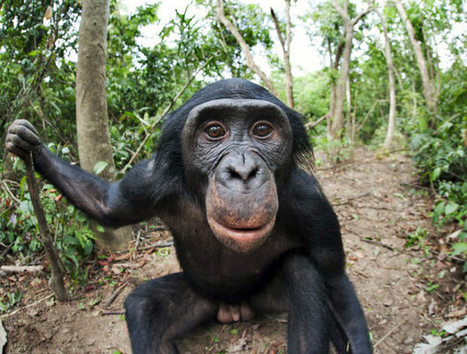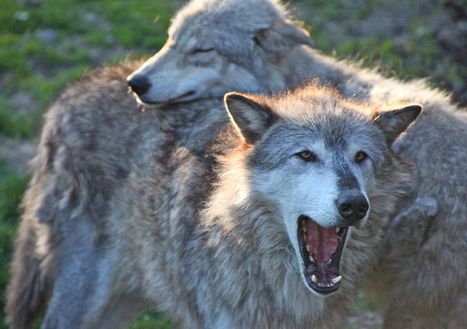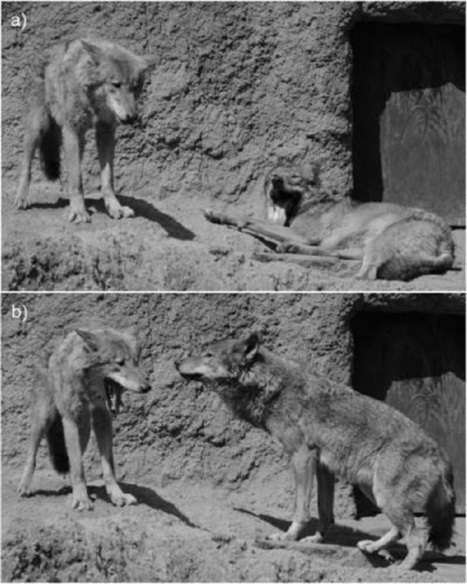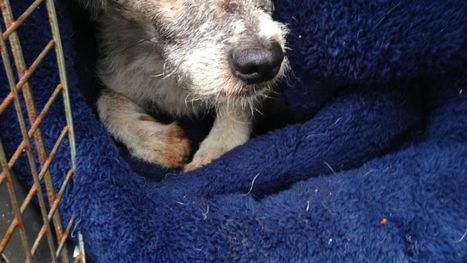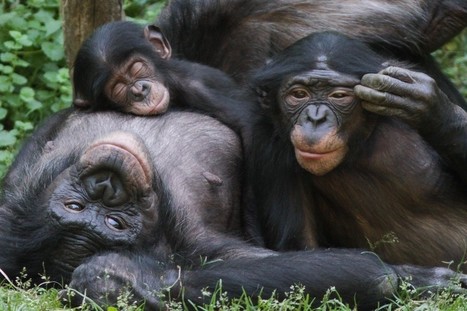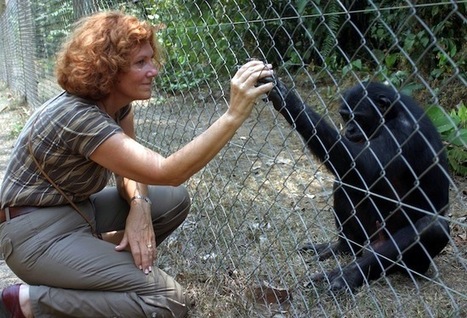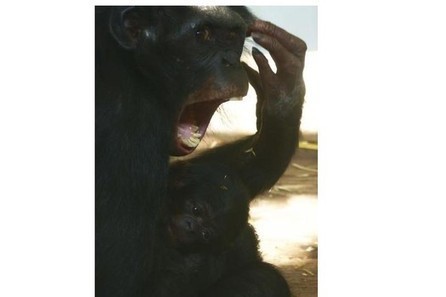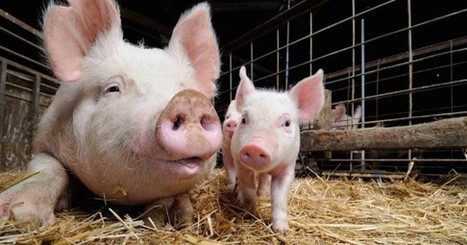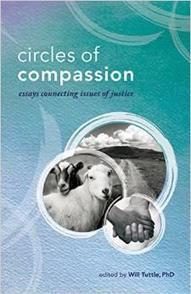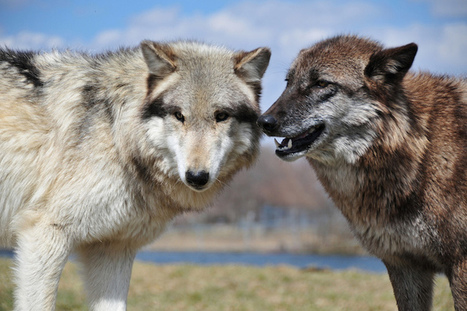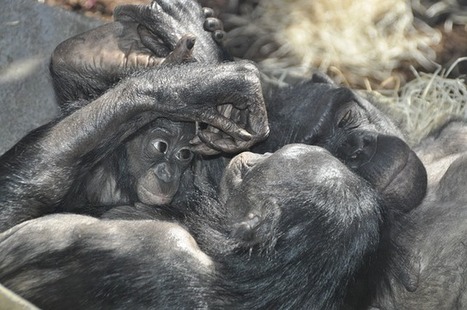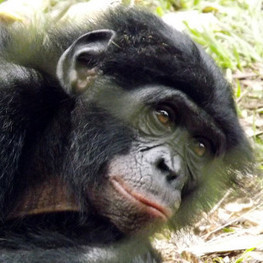 Your new post is loading...
 Your new post is loading...

|
Rescooped by
Edwin Rutsch
from Empathy Movement Magazine
January 26, 2015 10:03 PM
|
This very real story could be anywhere in the world, Australia, UK, Europe, but this story comes out of Sacremento US told by The Bee’s Cynthia Cuthbert.
Compassion Fatigue is becoming a real issue world wide for carers in general, whether you are a carer for animals, elderly, sick or a loved one. This particular story looks at the everyday stress endured by Animal Shelter Workers. .

|
Rescooped by
Edwin Rutsch
from Empathy Movement Magazine
December 28, 2014 2:11 PM
|
Turning Points in Compassion: Personal Journeys of Animal Advocates [Gypsy Wulff, Fran Chambers] on Amazon.com. *FREE* shipping on qualifying offers. Covering a range of topics from politics and law, to spiritual and social change, Turning Points in Compassion makes a compelling case for the recognition of the beauty

|
Rescooped by
Edwin Rutsch
from Empathy Movement Magazine
December 28, 2014 2:10 PM
|
What is the link between compassion for animals, social justice, and harmony in our human world? This book consists of a series of essays by internationally recognized authors and activists.
These insightful and inspiring essays focus on how the seemingly disparate issues of human, animal, and environmental rights are indeed connected. Illuminating the connections between injustice to animals and the various forms of social and ecological injustice, these thirty authors provide essential keys to effectively addressing the hidden roots of our dilemmas.
The essays also provide practical guidance about how to make the individual, systemic, and social changes necessary to effectively create a peaceful and just world for all. This landmark book provides a crucial impetus for us to break through our confining delusions, build bridges of understanding, and awaken from the cultural trance of indifference and inequity.

|
Rescooped by
Edwin Rutsch
from Empathy Movement Magazine
October 22, 2014 2:17 PM
|
Why do we have empathy? Why do we rush to another’s aid? Why do we put our arm around others to support them?
Empathy comes naturally to a great variety of animals, including humans.
In his work with monkeys, apes and elephants, anthropologist Dr. Frans de Waal has found many cases of one individual coming to another’s aid in a fight, putting an arm around a previous victim of attack, or other emotional responses to the distress of others. By studying social behavior in animals — such as bonding and alliances, expressions of consolation, conflict resolution, and a sense of fairness — de Waal demonstrates that animals and humans are preprogrammed to reach out, questioning the assumption that humans are inherently selfish.
by Vincent

|
Rescooped by
Edwin Rutsch
from Empathy Movement Magazine
September 16, 2014 3:12 PM
|
Paws with Compassion is a group of dedicated dogs and handlers who desire to alleviate suffering by offering open hearts and friendly paws.
Our varied backgrounds, experiences, and breeds enable us to engage with a broad population and address a variety of needs. We are proud to be the only therapy dog/K-9 crisis response group to require extensive, documented member training. Each team is interviewed and observed before joining Paws with Compassion. Once members, teams train and work regularly to maintain their skills.
Required training includes dog handling, canine body language, canine first aid, canine manners, therapy dog and crisis response dog handling, crisis intervention, crisis response, compassion fatigue, and appropriate response methods.

|
Scooped by
Edwin Rutsch
August 30, 2014 4:18 PM
|
People do it. They see someone near them yawn and then they yawn too. But new research shows that yawning is contagious among animals, mainly wolves, as well.
Yawning in response to another yawn isn't exactly an emotional reaction, but their contagious nature has been "clinically, psychologically, neurobiologically, and behaviorally linked to our capacity for empathy," the study authors wrote in the journal PLOS ONE.
...Contagious yawning is also observed in dogs; although, they don't yawn in response to yawns from other dogs, but to yawns from people.

|
Scooped by
Edwin Rutsch
August 30, 2014 4:10 PM
|
Researchers looked at whether or not wolves caught yawns from each other.
On the basis of observational and experimental evidence, several authors have proposed that contagious yawn is linked to our capacity for empathy, thus presenting a powerful tool to explore the root of empathy in animal evolution," the researchers stated in their PLOS ONE tudy abstract.
============================ Despite the small sample size the results suggest contagious yawning may relate to the wolves' capacity for empathy; other animals may also have the same ability to experience empathy. =====================

|
Rescooped by
Edwin Rutsch
from Empathy Movement Magazine
August 20, 2014 3:59 PM
|
But animals that are not so conspicuously brainy, from chickens to ants, show distinct physiological responses when members of their own species are in distress.
This might be hard to ascribe to anything other than hard-wired, instinctive behaviour. If that is indeed the case, then it could be that what we describe as empathy, even in humans, is simply the kind of behaviour that one expects natural selection to favour in social animals.

|
Rescooped by
Edwin Rutsch
from Empathy Movement Magazine
August 16, 2014 8:32 PM
|
Clinical Psychologist and Mercer University Professor, Miranda Pratt , who has pets of her own, said animal abusers could be abused themselves or lack empathy.
Towards the other. And in some cases it's an active sadism of getting pleasure from inflicting pain," said Pratt.
She said it's important to teach empathy
at a young age.
If a child killed or tortured an animal, whether it's a frog or dog, Pratt said help teach them it's wrong. One way could be exposing them to nature and showing them the value of life
Elise Brown,

|
Rescooped by
Edwin Rutsch
from Empathy Movement Magazine
August 13, 2014 2:28 PM
|
Empathy, according to Merriam-Webster, is "the feeling that you understand and share another person's experiences and emotions."
Though empathy is something which is (generally) shared among humans, there has been some contention over whether or not other animals share this trait, and to what extent.
Recently, a study published in PeerJ explored
the empathy similarities between humans
and Bonobo monkeys.
Since cognitive empathy is far from quantitative, the researchers studied the most simplistic form of an emotional contagion: the yawn.
By Lindsey Robertson

|
Rescooped by
Edwin Rutsch
from Empathy Movement Magazine
August 12, 2014 6:41 PM
|
Empathy is universal across different species, new research suggests. After comparing the "yawn contagion" effect between humans and bonobos, researchers found that having a relationship carries significantly greater weight in stirring empathy than belonging to the same species...
"Emotional contagion" is the most basic form of empathy, the ability to experience feelings of another individual.
"Emotional contagion" happens when feelings disclosed by facial expressions (for example sorrow, pain, happiness or tiredness) are passed from an "emitting face" to a "receiving face". Mirroring the sender's facial expression will trigger similar emotion in the recipient.
CHRISTINE HSUCHRISTINE HSU

|
Rescooped by
Edwin Rutsch
from Empathy Movement Magazine
August 12, 2014 6:41 PM
|
New research indicates that humans may not be the only species that expresses empathy.
Elisabetta Palagi with the Natural History Museum at the University of Pisa in Italy and colleagues are the first to demonstrate both differences and similarities in a common empathetic response in both humans and bonobos.
The research was presented in the Aug. 12, 2014, edition of the journal PeerJ.
Paul Hamaker

|
Rescooped by
Edwin Rutsch
from Empathy Movement Magazine
August 12, 2014 6:40 PM
|
Scientists from universities in Pisa, Parma and Rome found that the 'catching yawn' is caused by a need to share and understand the emotions and feelings of others.
- Scientists from universities in Pisa, Parma and Rome found that the 'catching yawn' is caused by a need to understand the feelings of others
- The 'emotional bridge’ created by yawning enhances social bonding
- Study found a yawn is far more likely to spread among groups of friends
- Human ability to feel empathy is far stronger between friends and relatives
- Yawns are also contagious in groups of apes, but don't signify friendship
By BEN SPENCER
|

|
Rescooped by
Edwin Rutsch
from Empathy Movement Magazine
January 26, 2015 10:02 PM
|
Scientists at Wageningen University in the Netherlands have discovered what many of us already knew: farmed animals feel empathy for their peers, a trait once thought exclusive to humans. These researchers discovered that “pigs shared the stress and happiness of their pen mates,” according to the Daily Mail. The article explains that the “findings suggest that swine respond to each other’s feelings,” and add “weight to the argument that the practice of separating the animals in farms is especially cruel.”
by Sarah Von Alt

|
Rescooped by
Edwin Rutsch
from Empathy Movement Magazine
December 28, 2014 2:11 PM
|
As we head into 2015 there's a need for compassion and rewilding revolutions
As I read and reflected on these two books, I thought about what a young student once said to me after we had a discussion about what we all need to do to help our troubled and wounded world. He simply said, "compassion rocks." It does indeed, as does rewildling. If this youngster got it and understood the power of compassion, then we should too.
There's a Charter for Compassion that "transcends religious, ideological, and national differences. Supported by leading thinkers from many traditions, the Charter activates the Golden Rule around the world." You can easily sign on to and share this charter.
by Marc Bekoff

|
Rescooped by
Edwin Rutsch
from Empathy Movement Magazine
December 28, 2014 2:10 PM
|
Rewilding Our Hearts: Building Pathways of Compassion and Coexistence [Marc Bekoff, Richard Louv] on Amazon.com. *FREE* shipping on qualifying offers. In wildlife conservation, rewilding refers to restoring habitats and creating corridors between preserved lands to allow declining populations to rebound. Marc Bekoff

|
Rescooped by
Edwin Rutsch
from Empathy Movement Magazine
September 30, 2014 4:33 PM
|
In this wonderful short video from NOVA’s series The Secret Life of Scientists and Engineers, Dr. Goodall considers how empathy for other animals brings us closer to our highest human potentiality:
“I was told you have to give them numbers because you've got to be objective as a scientist, and you mustn't empathize with your subjects and I feel this is where science has gone wrong. To have this coldness, this lack of empathy has enabled some scientist to do unethical behavior.
Moreover, why deny a perfectly respectable tool? I think those two are behaving like that because that’s how I would behave if I was in that situation, that’s empathy. Once you've worked out why you think they are doing that, then you can start testing that. Am I right? Is this a valid assumption or not? But it gives you the groundwork for asking questions,
I think empathy is really important and I think only when our clever brain and our human heart work together in harmony can we achieve our full potential. “ Jane Goodall
by Maria Popova

|
Scooped by
Edwin Rutsch
September 1, 2014 11:06 PM
|
By ELLIE ZOLFAGHARIFARD Scientists observed 12 wolves' behaviour for 254 hours over the course of five months. The research by the Tama Zoological Park in Tokyo, Japan, suggests that empathy among animals is a common trait.
Even though the study involved a small number of wolves, researchers said the findings offer initial evidence that contagious yawning is linked to wolves' capacity for empathy.
Perhaps empathy is present in more species
than previously thought, said lead
author Teresa Romero, a researcher from
The University of Tokyo.

|
Rescooped by
Edwin Rutsch
from Empathy Movement Magazine
August 30, 2014 4:14 PM
|
Contagious yawning in wolves give researchers a glimpse at the roots of empathy.
Still, these theories don’t totally explain one of the more fascinating aspects of yawning: When we see someone else yawn, our chances of yawning go way up.
The leading hypothesis among scientists, Romero says, is that this contagious yawning is related to empathy—meaning an empathetic person or animal will feel tired when he or she observes another individual looking tired.
(See “‘Contagious’ Yawning Occurs More Among Loved Ones.”)
by Carrie Arnold

|
Rescooped by
Edwin Rutsch
from Empathy Movement Magazine
August 28, 2014 11:25 PM
|
Could wolves feel empathy? A recent study published in the journal PLOS ONE shows that just like humans and other types of dogs, these creatures are also susceptible to yawn contagion.
With yawning contagion, scientists from the University of Tokyo, Japan, actually believe that these animals may be capable of understanding others in the pack.
Previous studies have shown that contagious yawning is experienced in domestic dogs who also witness their owners yawning.
However, up until now, scientists were uncertain of how the phenomenon rooted in the evolution of mammals or whether it evolved due to domestication.
For the

|
Rescooped by
Edwin Rutsch
from Empathy Movement Magazine
August 20, 2014 3:58 PM
|
Are animals empathetic? World famous Koko the Gorilla, said to have mourned the death of comedic legend Robin Williams, reignites the debate over just how much empathy animals can muster, even across species

|
Rescooped by
Edwin Rutsch
from Empathy Movement Magazine
August 16, 2014 8:29 PM
|
Results of a new study indicate that bonobo monkeys have very similar empathetic capabilities to humans.
Though empathy is something generally shared among humans, it is still up for debate whether or not other animals share this trait, and to what extent. Results of a new study indicate that bonobo monkeys have very similar empathetic capabilities to humans.
Although, unlike bonobos, we have a higher level of empathy towards individuals with whom we are close, such as family and friends.
The findings were published in the journal PeerJ.

|
Rescooped by
Edwin Rutsch
from Empathy Movement Magazine
August 13, 2014 2:28 PM
|
Empathy is universal across different species, new research suggests. After comparing the "yawn contagion" effect between humans and bonobos, researchers found that having a relationship carries significantly greater weight in stirring empathy than belonging to the same species.
"Emotional contagion" is the most basic form
of empathy, the ability to experience feelings
of another individual.
"Emotional contagion" happens when feelings disclosed by facial expressions (for example sorrow, pain, happiness or tiredness) are passed from an "emitting face" to a "receiving face". Mirroring the sender's facial expression will trigger similar emotion in the recipient.
The findings are published in the peer-reviewed journal PeerJ.

|
Rescooped by
Edwin Rutsch
from Empathy Movement Magazine
August 12, 2014 6:41 PM
|
In the absence of complex emotional bonds, humans and bonobos show similar empathy, according to a study.
Contagious yawning has long been linked to empathy: humans and apes yawn more in response to the yawns of their kin and friends.
Now, scientists studying yawn contagion have shown that humans may not always be the most empathetic species. Their results, published today (August 12) in PeerJ, show that humans yawn more than bonobos only when close family and friends trigger the yawns. In the presence of mere acquaintances, however, humans and bonobos showed similar yawn sensitivity.
“It seems that the basal level of empathetic capacity is the same in the two species,”
By Shreya Dasgupta

|
Rescooped by
Edwin Rutsch
from Empathy Movement Magazine
August 12, 2014 6:41 PM
|
Whether or not humans are the only empathic beings is still under debate. In a new study, researchers directly compared the 'yawn contagion' effect between humans and bonobos (our closest evolutionary cousins).....
In conclusion, this study suggests that differences in levels of emotional contagion between humans and bonobos are attributable to the quality of relationships shared by individuals.
When the complexity of social bonds, typical of humans, is not in play,
Homo sapiens climb down the tree of empathy to go back to the understory which we share with our ape cousins.
|



 Your new post is loading...
Your new post is loading...





